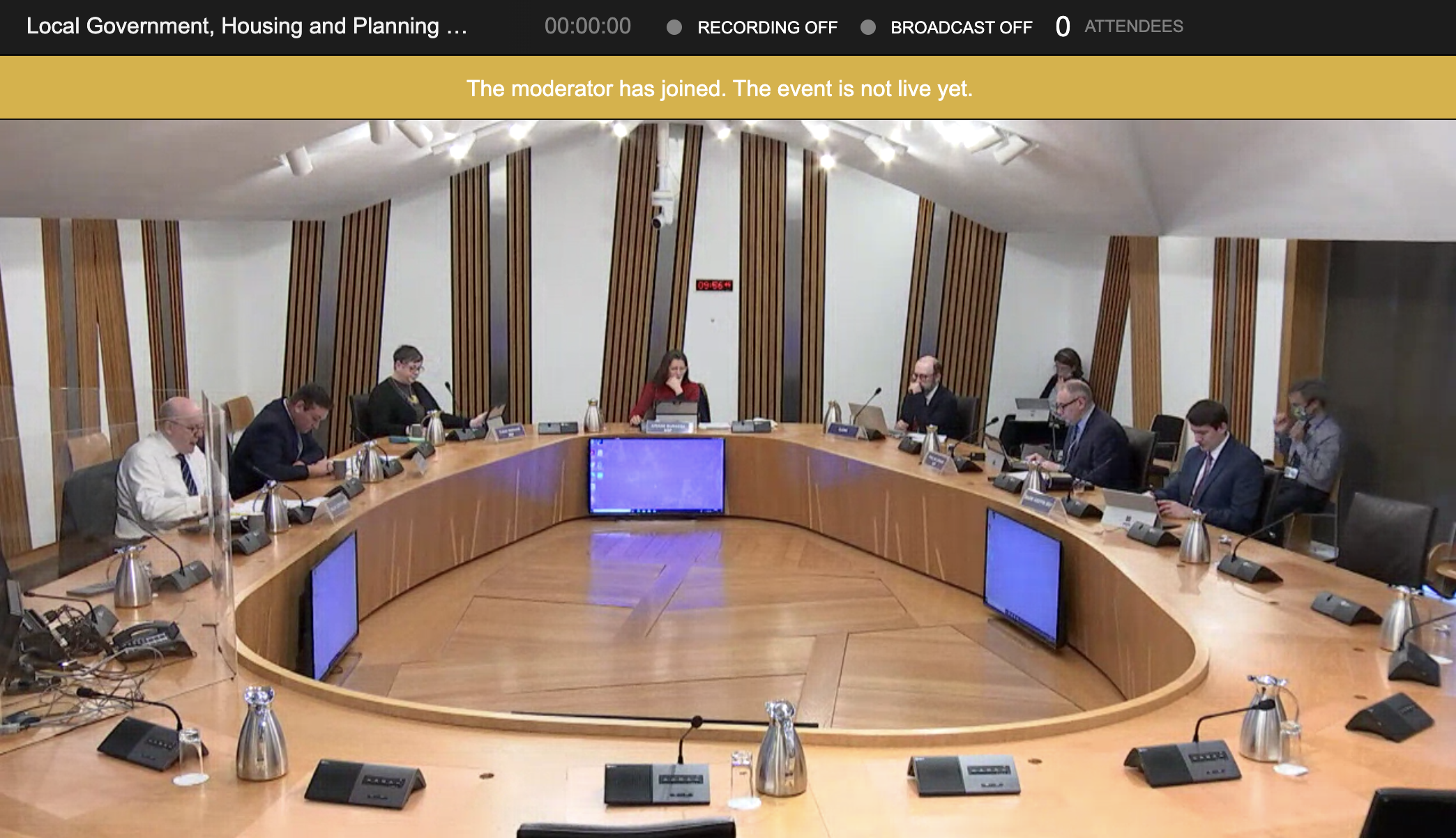The ASSC today provided oral evidence to the Scottish Parliament’s Local Government, Housing and Planning Committee as part of their scrutiny of the Scottish Government’s proposed short-term let licensing scheme.
Our Chief Executive Fiona Campbell was joined by other industry stakeholders including David Weston from the Scottish B&B Association, Amanda Cupples from Airbnb, and Shomik Panda from the UK STAA.
During the hour and a half evidence session, we stressed the importance of our £867m sector to the Scottish economy, how it was imperative to back Scottish businesses to recover from the pandemic, as well as bringing some much needed clarity about existing regulations the government have at their disposal and what we should be looking to achieve in terms of the regulatory framework for short-term lets.
The ASSC also highlighted the uncertainties for future bookings arising from licensing, how the fees are completely disproportionate, and that local councils in charge of administering the scheme will also be negatively impacted. The panel as a whole emphasised the benefits that a mandatory registration system could bring to all affected stakeholders and best practice seen elsewhere.
The Committee was also joined by SNP MSP Fergus Ewing who called the evidence provided by the panellists against short-term let licensing as “comprehensive, persuasive and compelling.”
MSPs will now hear from another panel of witnesses next week, before taking evidence from the Cabinet Secretary Shona Robison and her officials.
Recorded video coverage of today’s Committee session can be accessed here. Unfortunately, the first ten minutes of the session were not recorded, but will be covered in the Committee report which will be published in due course.
Following today’s session, the ASSC released the following press comment.
Association of Scotland’s Self-Caterers Chief Executive, Fiona Campbell, said:
“These licensing regulations could not have come at a worse time for Scotland’s self-caterers, most of whom are still reeling from the devastating impact of the pandemic on our businesses and livelihoods.
“It remains astonishing that the Scottish Government seems intent on kicking self-caterers while we’re down by imposing these damaging and potentially ruinous regulations on a sector that contributes £867m to the Scottish economy each year, as well as supporting 24,000 FTE jobs.
“Instead of an onerous licensing scheme with crippling operator fees, the ASSC have put forward a workable and proportionate mandatory registration scheme which has cross-industry and cross-party support.
“The Scottish Government needs to change its course and show that it is on the side of thousands of small businesses across the country by giving them the room and flexibility they need to get back on their feet.”
The Official Report for the meeting of the LGHP Committee has now been published:
Url: https://www.parliament.scot/chamber-and-committees/official-report/what-was-said-in-parliament/LGHP-07-12-2021?meeting=13460&iob=122170
Pdf: https://www.parliament.scot/api/sitecore/CustomMedia/OfficialReport?meetingId=13460


